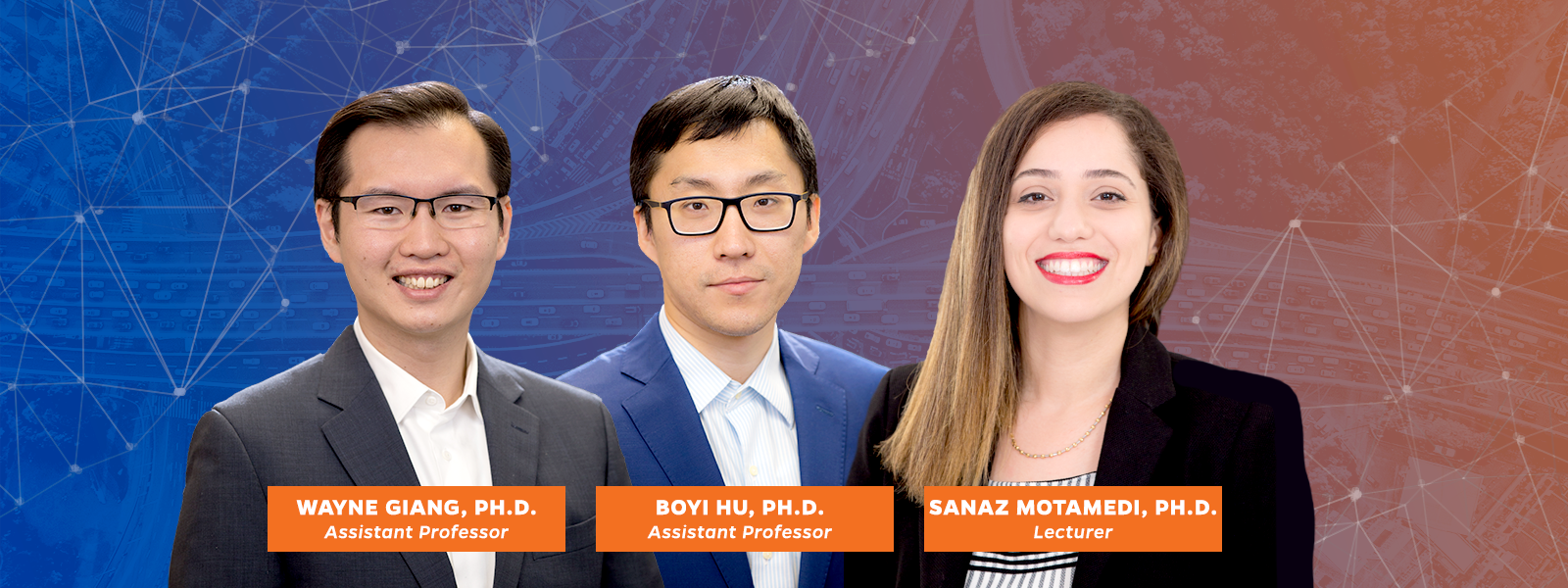Three University of Florida Department of Industrial & Systems Engineering (UF ISE) faculty received funding from the Department of Transportation (DOT) after competing in the Inclusive Design Challenge, which tasked competitors with designing a solution to enable people with disabilities to use automated vehicles (AVs).
The DOT Inclusive Design Challenge was created in 2020 and focuses on innovative design to enable people with physical, sensory, and cognitive disabilities to use automated vehicles. Currently, about 16 million people with cognitive disabilities, such as dementia, cannot drive due to their increased risk to roadway safety. The challenge calls on teams to develop solutions that can improve vehicle accessibility, encourage cross-disciplinary collaborations, and incentivize new designs and technologies.
The winning team consisted of twelve members, including UF ISE faculty Wayne Giang, Ph.D., Sanaz Motamedi, Ph.D., and Boyi Hu, Ph.D., as well as faculty from UF’s Department of Computer & Information Science & Engineering, UF’s Engineering School of Sustainable Infrastructure & Environment, and the University of Kansas.
“Our interdisciplinary team includes transportation engineers, human factors experts, computer and data scientists, health professionals, and disability experts, and is uniquely positioned to develop inclusive, intuitive, and innovative design solutions to serve people with cognitive disabilities. Through our strong expertise, our robust engagement with the users and advisory board, and our state-of-the-art facilities, we will positively impact the mobility, safety, and quality of life of people with cognitive disabilities,” said Dr. Motamedi.
The faculty from UF focused on developing an innovative automated driving system (ADS) design that, on a scale of 0-5 where 0 is manually controlled driving and 5 is fully automated driving, can operate at Levels 4 and 5 of automation. These systems will allow people with cognitive disabilities to utilize automated vehicles with little to no intervention during a drive.
“Automated vehicles have the potential to improve the quality of life for those with mild cognitive impairments by allowing them to stay active and mobile within the community. However, we need to be careful to address the barriers these individuals may face when using AVs, since they may be unique and differ from the challenges that are currently being tackled in human-AV research and design. The goal of our group is to build a prototype system that supports a personalized pre-trip and en-route experience that addresses the needs of those with MCI, their caregivers, and their doctors,” said Dr. Giang
The proposed system will have the capability to connect the traveler with the ADS through a mobile app to accommodate pre-trip planning. The system will also integrate a traveler monitoring system that detects traveler emotional and cognitive state based on their facial expressions, skeletal motion, and eye movement. These expressions and behaviors will be captured by a webcam as well as a screen-based eye tracker. The data will then be used to evaluate the traveler’s level of alertness.
The team will then implement an automated in-vehicle agent that will house a customized playbook of possible interventions defined by the traveler, their caregivers, and their doctors prior to using the ADS. This personalized learning model will then be able to provide real-time feedback to travelers in emergency or non-emergency situations.
